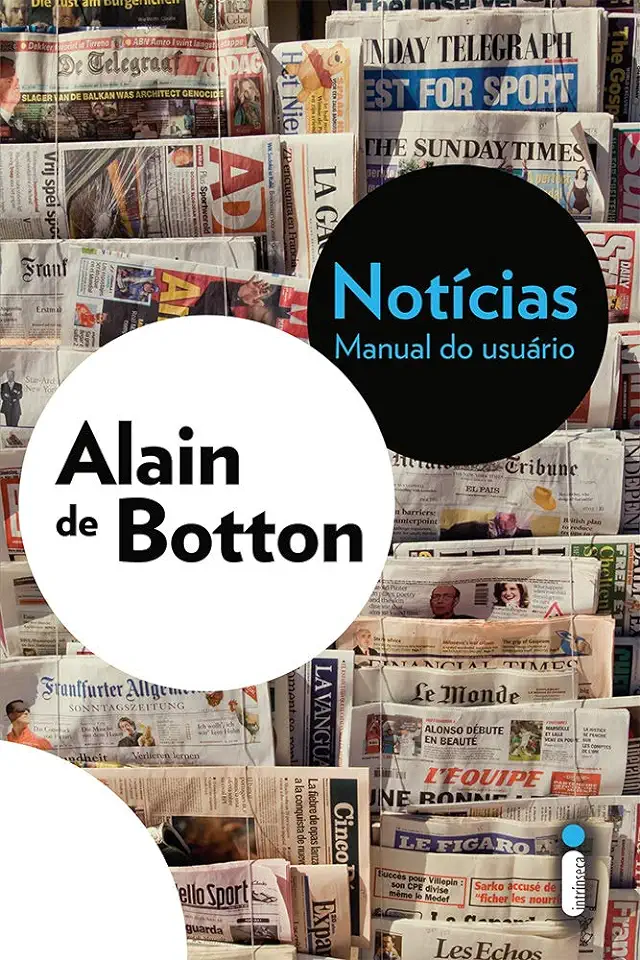
News - User's Manual - Alain de Botton
News: A User's Manual by Alain de Botton
In the era of information overload, it's easy to feel overwhelmed and disconnected from the world around us. News, in particular, can be a source of anxiety and confusion, leaving us feeling powerless and pessimistic. But what if there was a way to consume news more effectively, to make sense of the chaos, and to use it as a tool for personal growth and understanding?
In his thought-provoking book, "News: A User's Manual," Alain de Botton offers a fresh perspective on the role of news in our lives. Drawing on philosophy, psychology, and history, de Botton argues that news is not simply a collection of facts, but a powerful force that shapes our worldview and influences our behavior.
Understanding the Nature of News
De Botton begins by examining the nature of news itself. He argues that news is not an objective account of events, but rather a selective and subjective narrative constructed by journalists and media outlets. This narrative is often shaped by commercial interests, political agendas, and cultural biases, which can lead to distortions and misrepresentations.
By understanding the inherent limitations of news, we can become more critical consumers of information. We can learn to question the motives behind news stories, to recognize biases, and to seek out multiple perspectives. This critical approach allows us to make more informed decisions about what information we choose to believe and how we respond to it.
The Psychological Impact of News
De Botton also explores the psychological impact of news on our emotions and well-being. He argues that a constant stream of negative news can lead to anxiety, depression, and a sense of helplessness. This is because our brains are wired to pay more attention to negative information, which can create a distorted view of the world and make it difficult to maintain a positive outlook.
To counter this effect, de Botton suggests cultivating a more balanced approach to news consumption. This includes limiting our exposure to negative news, seeking out positive stories, and engaging in activities that promote emotional well-being. By taking control of our news consumption, we can reduce its negative impact on our mental health and cultivate a more optimistic and resilient mindset.
Using News for Personal Growth
Finally, de Botton argues that news can be a valuable tool for personal growth and understanding. By reflecting on news stories and their implications, we can gain insights into our own lives, our relationships, and the world around us. News can help us to develop critical thinking skills, empathy, and a deeper understanding of human nature.
De Botton encourages readers to use news as a starting point for conversations, debates, and self-reflection. By engaging with news in a thoughtful and critical way, we can transform it from a source of anxiety into an opportunity for learning, growth, and personal transformation.
Conclusion
"News: A User's Manual" is a must-read for anyone who wants to navigate the complex world of news and media. Alain de Botton's insightful analysis and practical advice provide a roadmap for consuming news more effectively, reducing its negative impact, and using it as a tool for personal growth and understanding.
In a time when news can be a source of division and despair, de Botton offers a refreshing and empowering perspective. He shows us how to reclaim control over our news consumption, to make informed choices about the information we absorb, and to use news as a catalyst for positive change in our lives and the world around us.
Enjoyed the summary? Discover all the details and take your reading to the next level — [click here to view the book on Amazon!]